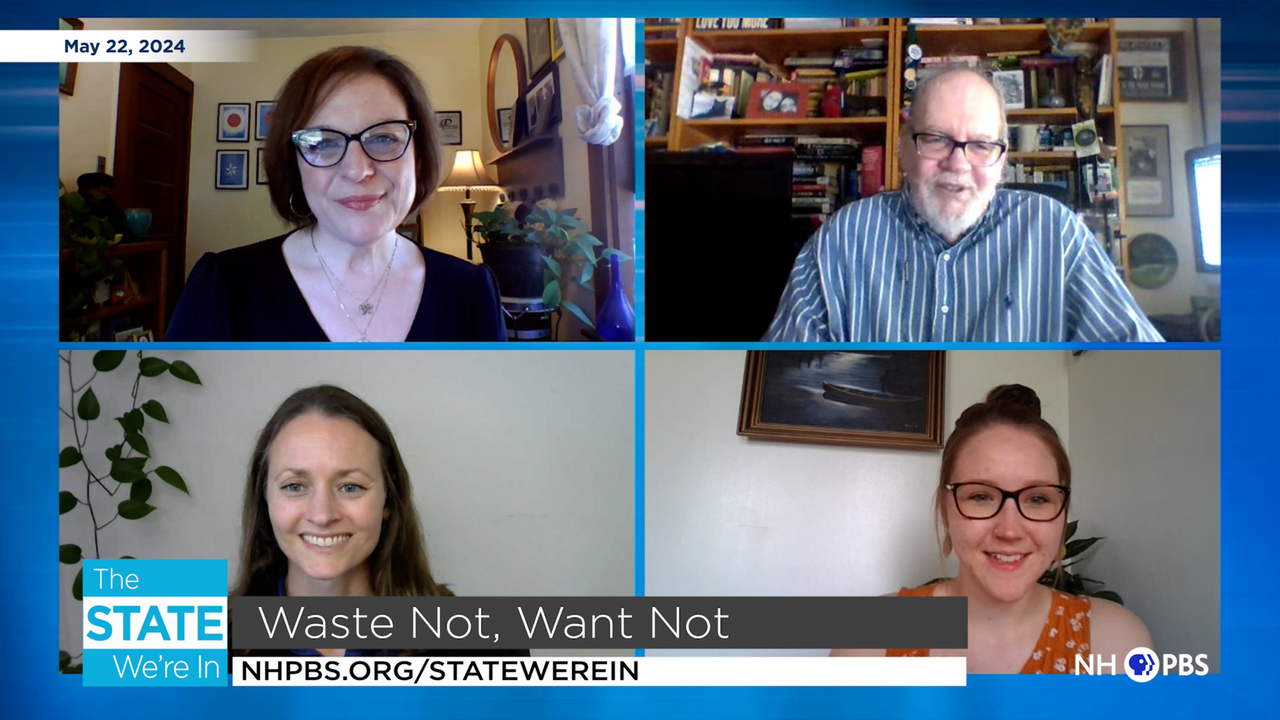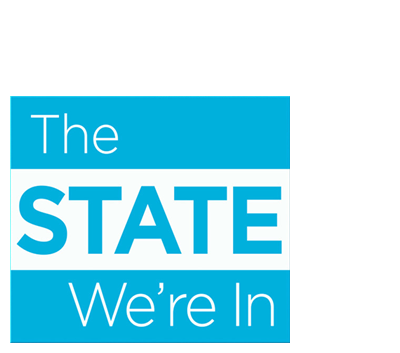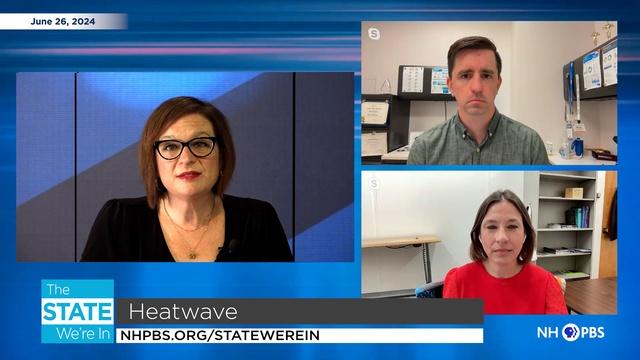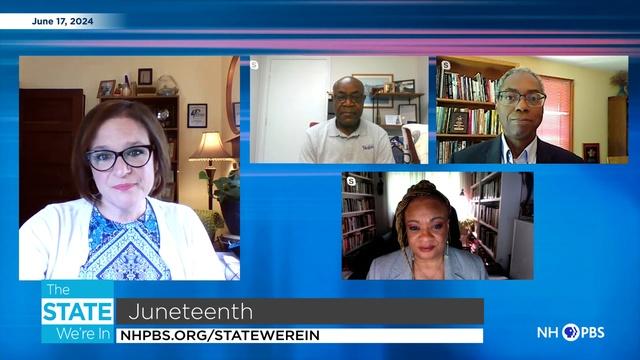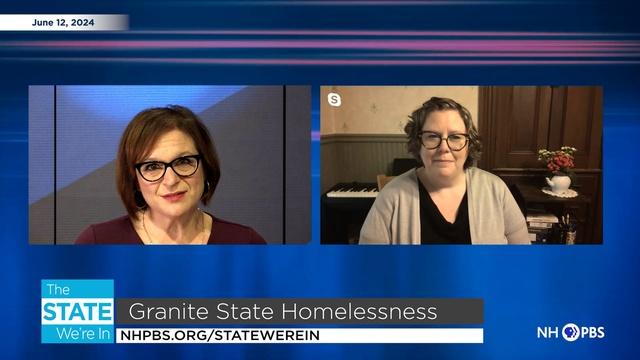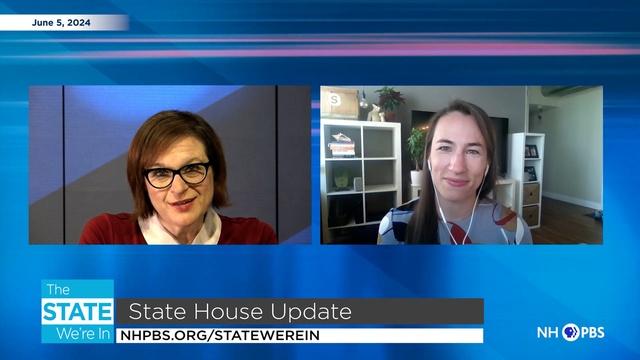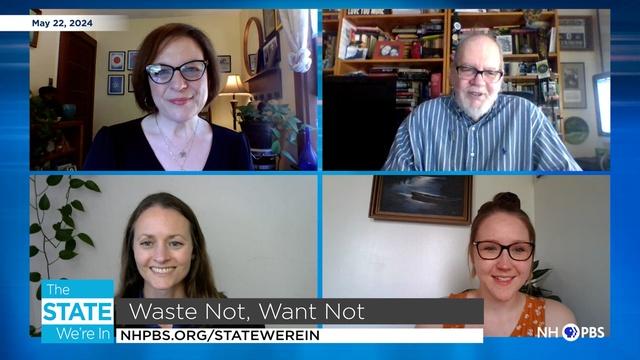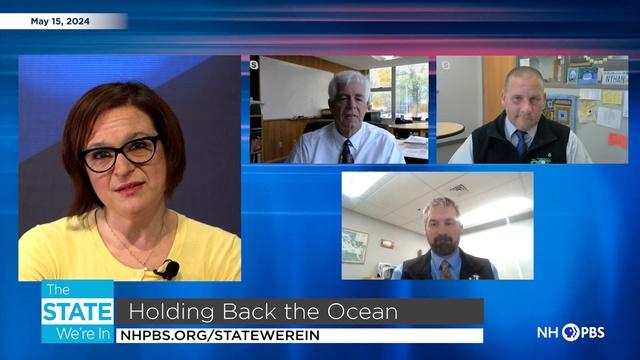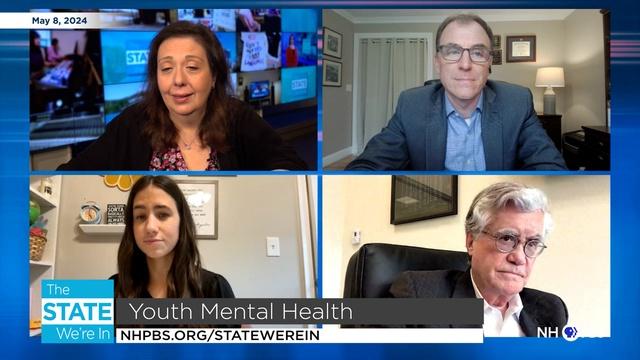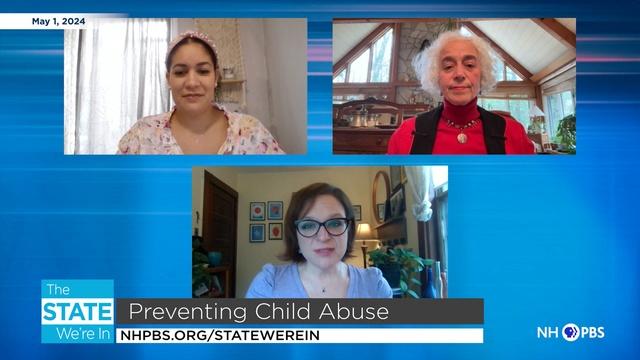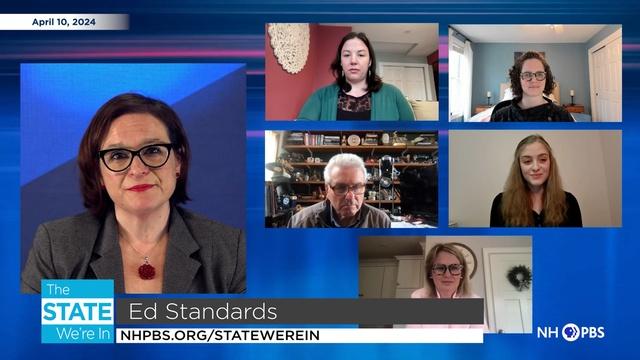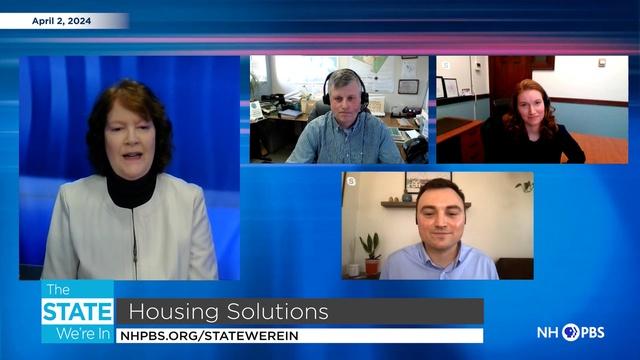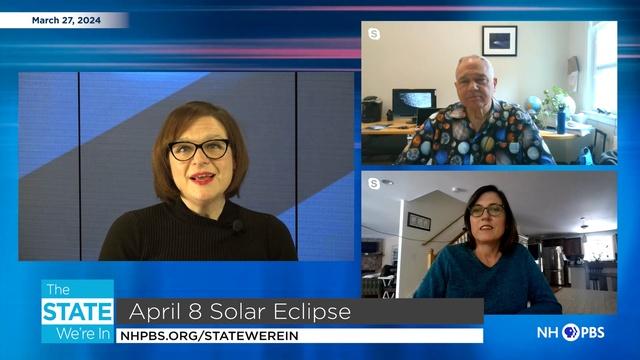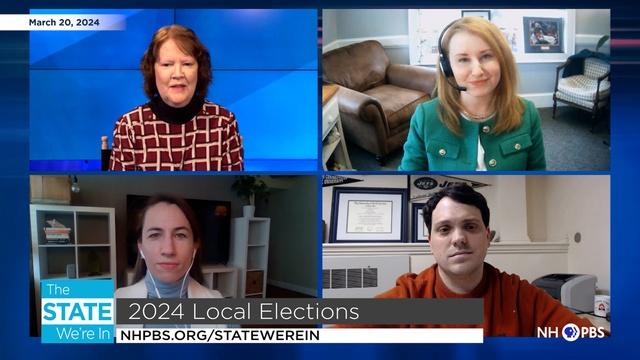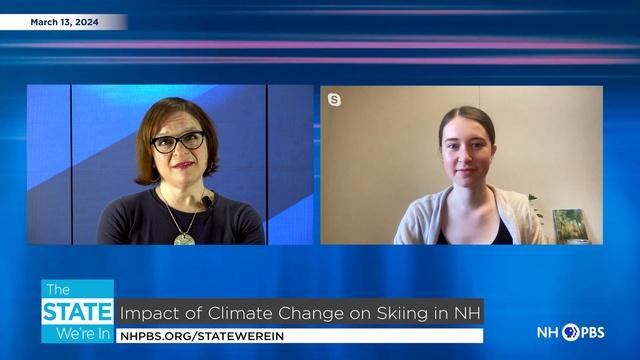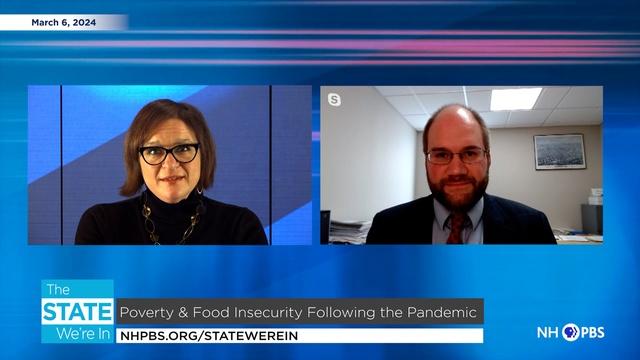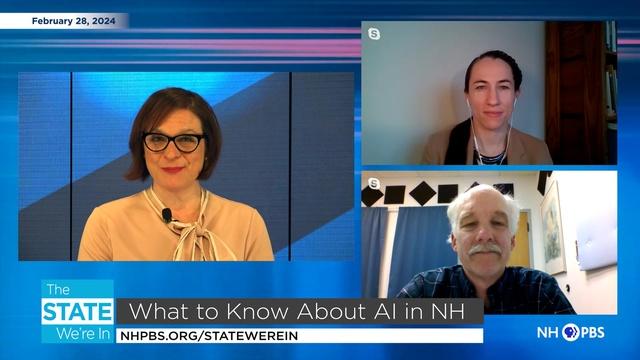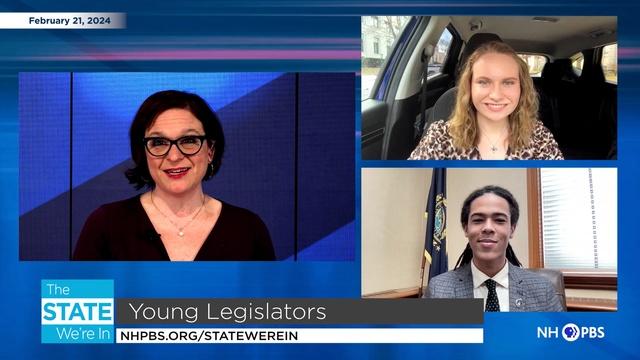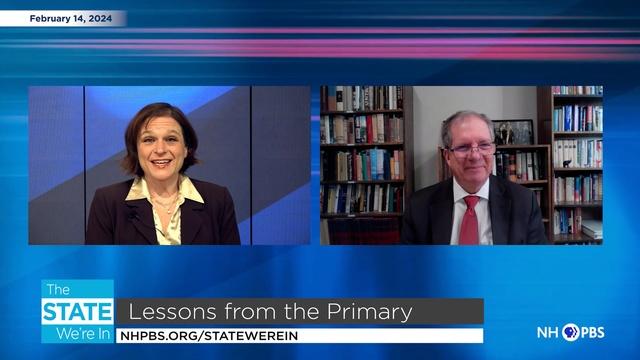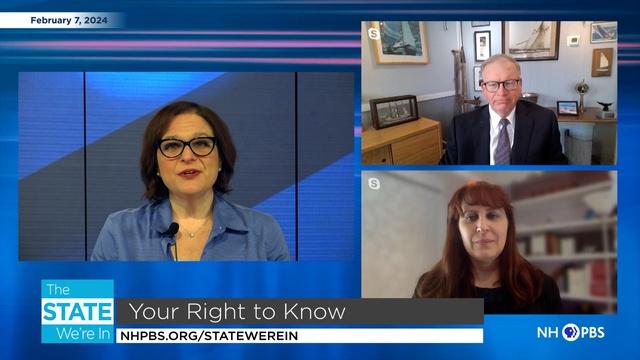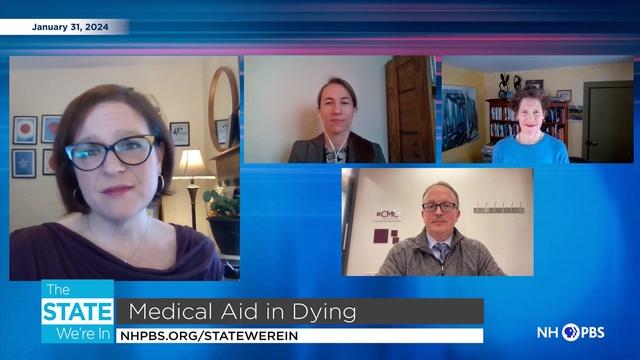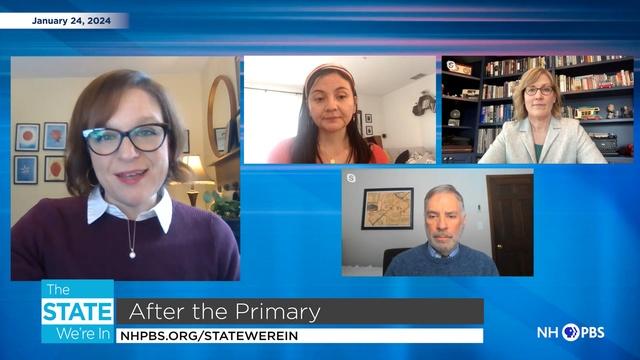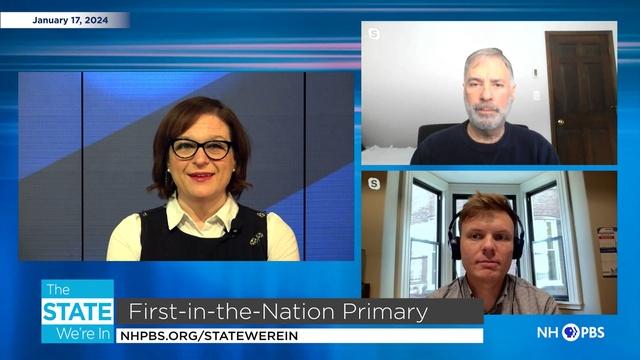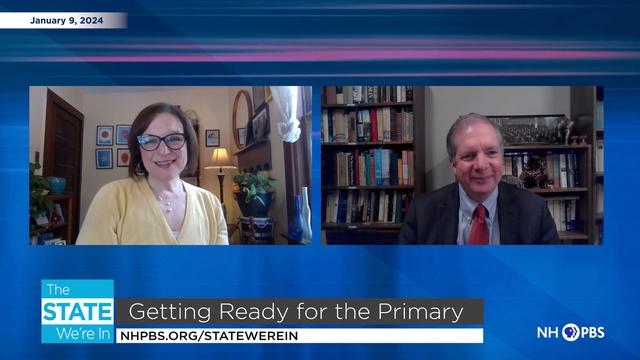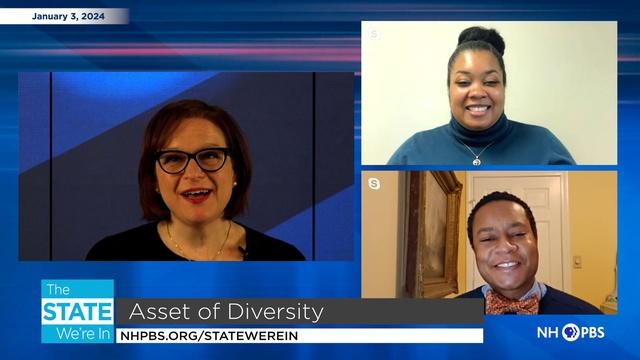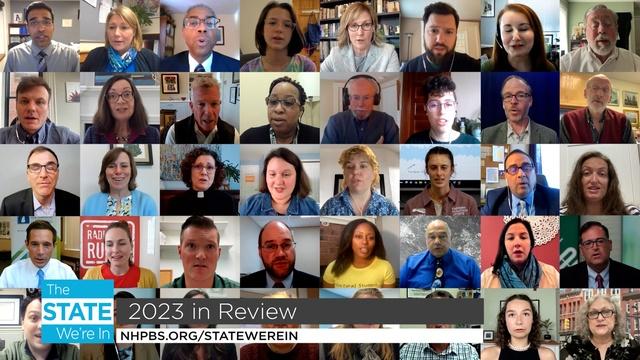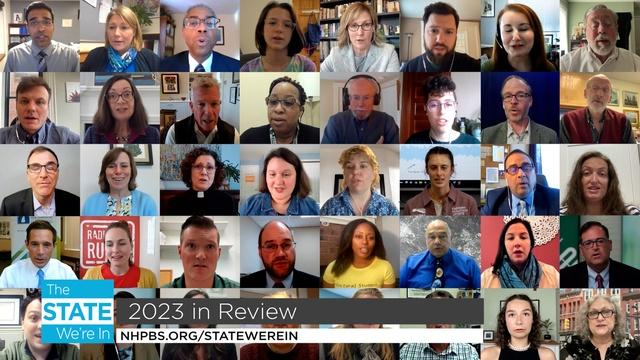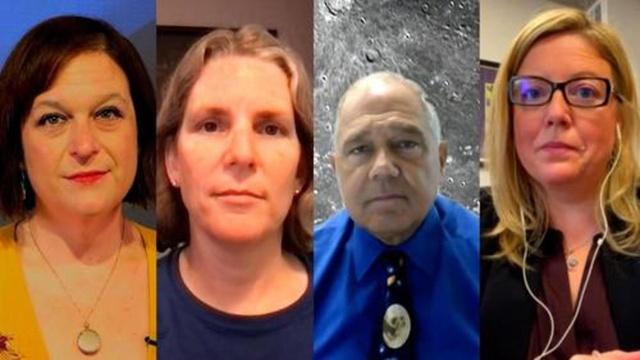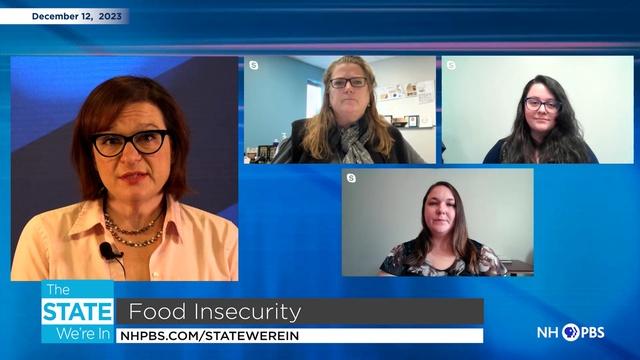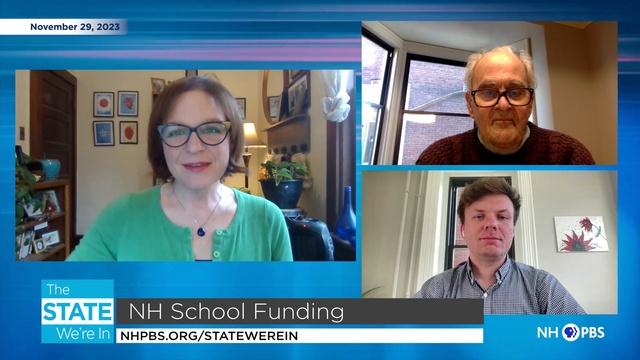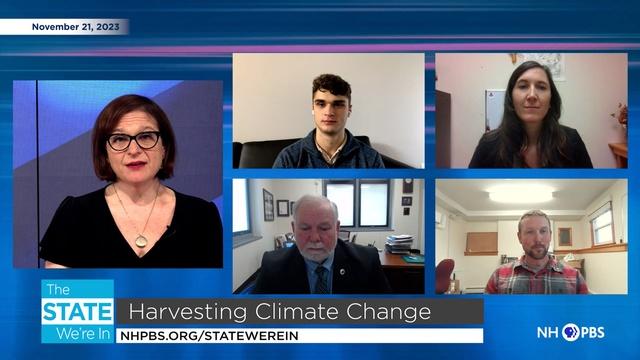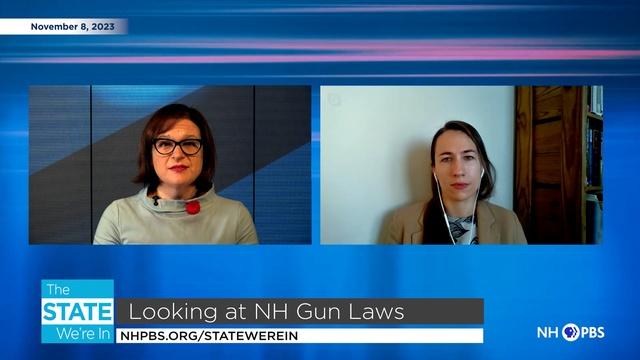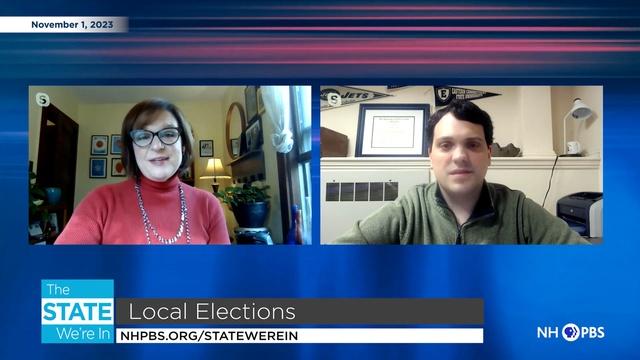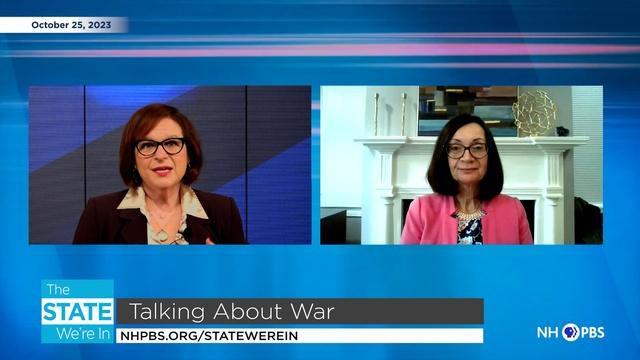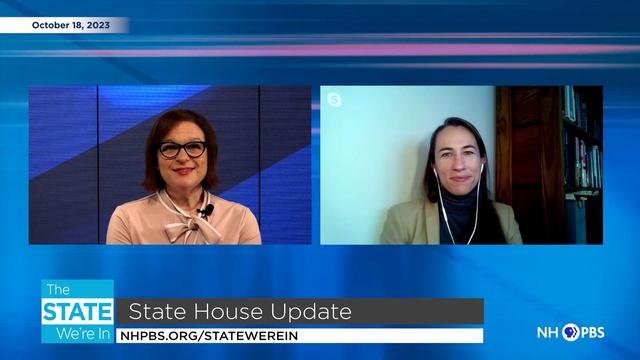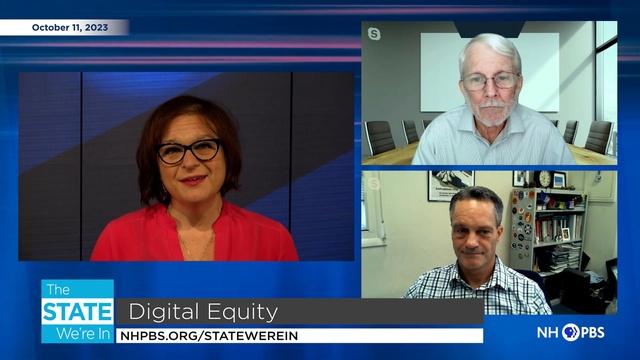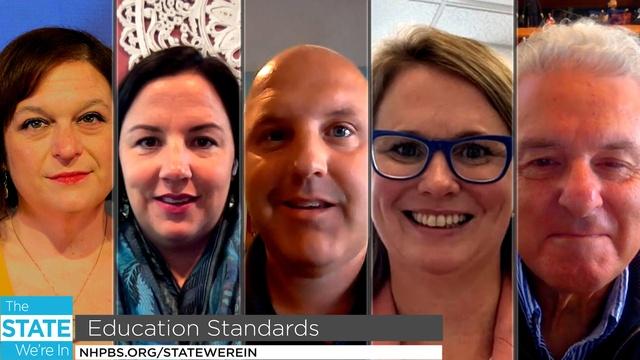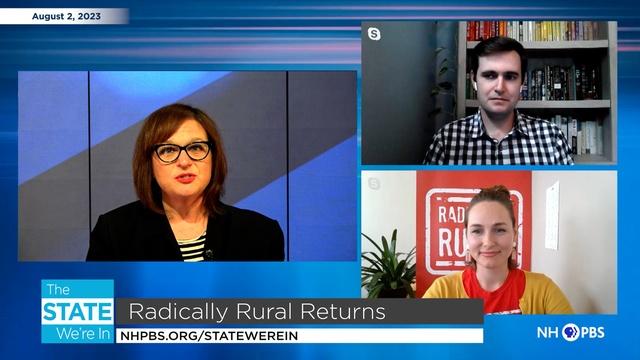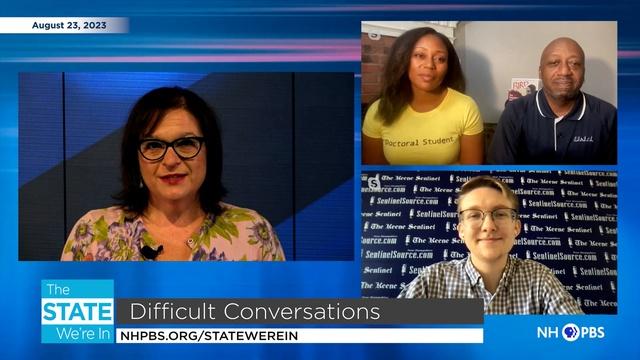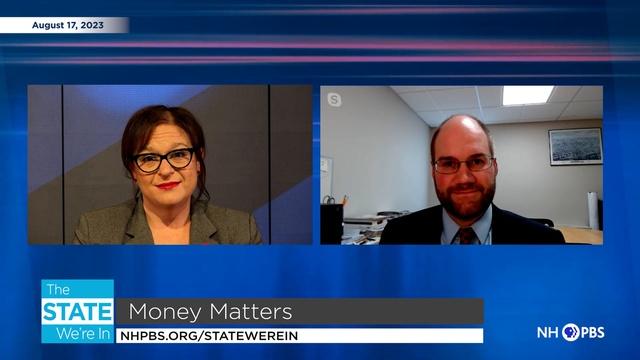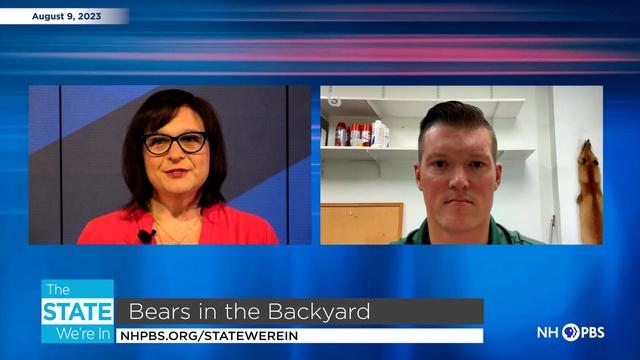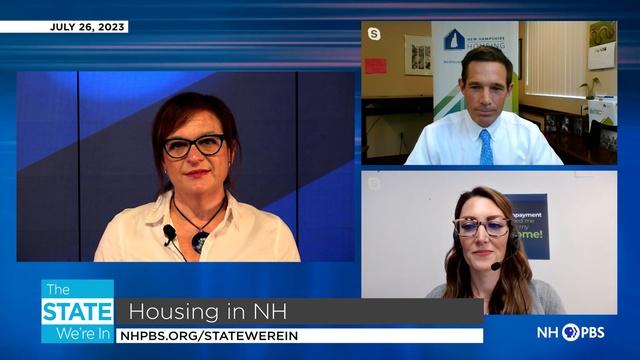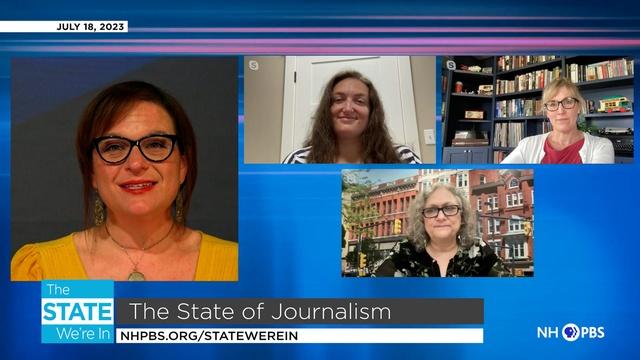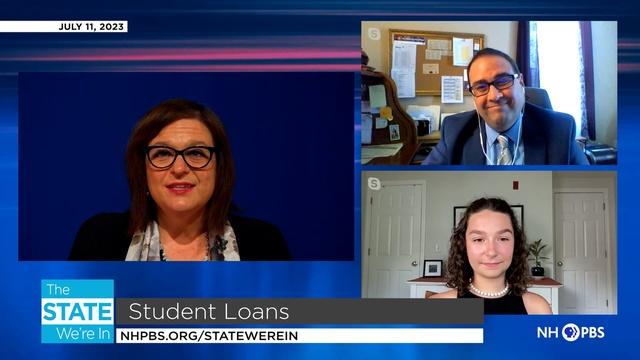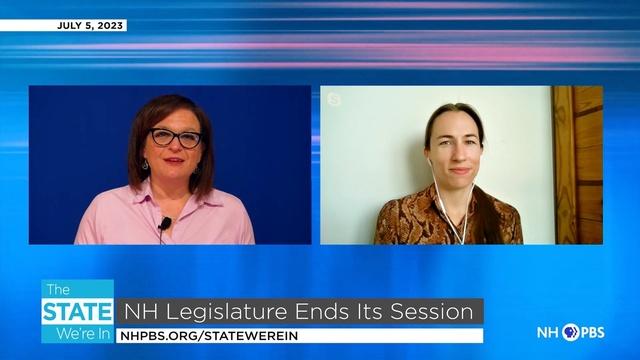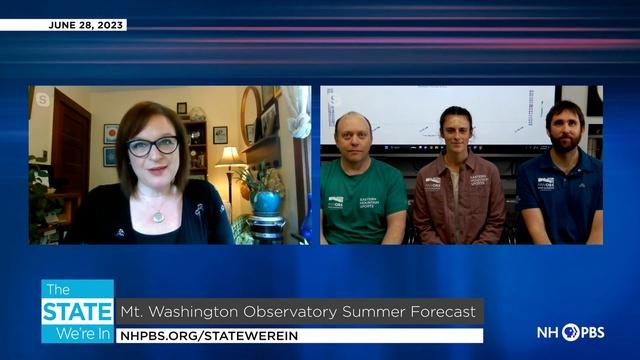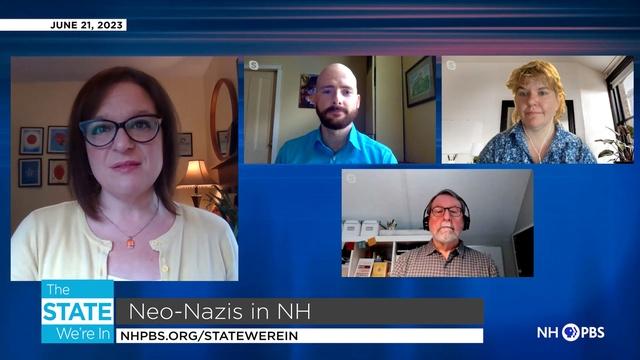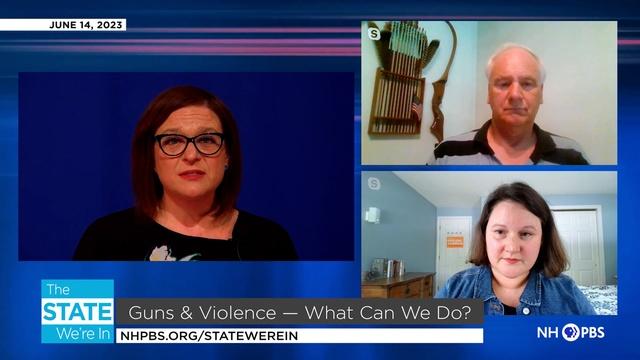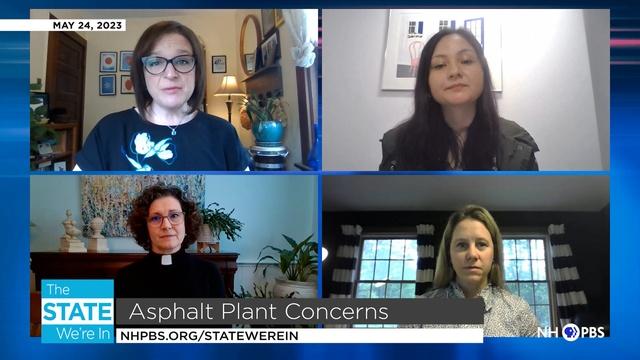Waste Not, Want Not
Food Waste in New Hampshire
From landfills to sustainability: How New Hampshire’s food waste ban can reduce methane
The Environmental Protection Agency estimates that state residents put more than 180,000 tons of food waste into landfills each year, or about 24% of all waste. As it decays, this waste produces methane gas — a significant contributor to global warming and climate change. Following other states trying to mitigate this problem, New Hampshire passed its own version of a food waste ban last summer. On this episode of “The State We’re In,” Michael McCord, a freelance reporter for Granite State News Collaborative who recently has written about the topic, Paige Wilson, waste reduction and diversion planner for the N.H. Department of Environmental Services, and Reagan Bissonnette, executive director of Northeast Resource Recovery Association, discuss how it will work and how it might benefit the average resident.
By Rosemary Ford and Caitlin Agnew
This article has been edited lightly for length and clarity.
Melanie Plenda:
Can you explain more about what food waste is? Why is it a problem? How big of an issue is it here in New Hampshire?
Michael McCord:
The problem of food waste is environmental, ecological and economic. All these factors play into it. When we think about food waste, it's literally every scrap of the food that’s unplated, or uneaten, food. It's also food that is sold but not used and it’s also food that is never sold. It either goes to a pantry or to organizations like that, or it gets dumped into landfills.
That is a problem, because as I discovered in my research for the story, in the landfill, this stuff is unaerated — the air doesn't allow the food waste to break down quickly. It does break down slowly, but as it breaks down it’s creating methane gas, and methane gas is the greatest detriment to fighting climate change, in terms of enhancing climate change. When I interviewed Paige, she called this ”low-hanging fruit.” Getting food waste out of landfills will make a huge difference.
Melanie Plenda:
Why is it important to get rid of food waste, this low-hanging fruit, when it comes to stopping global warming?
Paige Wilson:
The importance of reducing and diverting food waste is that we want to save resources by reducing the amount of time and energy and land that's dedicated to growing our food and getting it from the farm to the grocery store to our plate, and everywhere in between. Then also saving landfill space, because landfills do have limited space, and we want to make sure that we have that disposal capacity for as long as we need it for items that can't be recycled or diverted or composted.
Melanie Plenda:
What solutions are being explored in New Hampshire?
Paige Wilson:
We’re really seeing a lot of interest from people and businesses along the food chain. Farms have actually been collecting food scraps from their CSA [community-supported agriculture] members. So starting with people who are already coming to the farm to get their produce — they’ve shown an interest in supporting local food systems. Tapping into that network to start collecting food scraps and seeing what kind of capacity they might have at their farm to then see, just in their community, who might be interested in diverting their food scraps. Some farms have had so much interest and success that they’ve now been applying for permits and expand their capacity and compost even more.
So at a farm level, we're seeing a lot of activity there as well as schools, camps and universities that are working with haulers all across the state to pick up their food waste from their dining halls. A lot of businesses tend to focus on their pre-consumer food waste — things that are coming from the kitchen — just as a starting point to see what’s feasible for their capacity, their existing staff.
Melanie Plenda:
How much will developing an infrastructure to keep food waste out of landfills cost? What's involved in that infrastructure?
Paige Wilson:
There are so many factors in trying to calculate cost and what kind of infrastructure is needed throughout the state, but it will probably take millions of dollars for a statewide increase in capacity of infrastructure to manage food donations — helping farms to increase their capacity to accept food waste, both for their own composting operations, but also for feeding their animals. There's also the topic of anaerobic digestion, although we don't have any anaerobic digesters in New Hampshire, we have seen an increase in inquiries from businesses that want to build an anaerobic digester in New Hampshire.
I think that a lot of this infrastructure will initially develop in more of the central and southern parts of New Hampshire, just because of the amount of people, and that's where a lot of the food waste is being generated. Businesses might see that as an opportunity for an easy supply and demand, where they can comfortably set up shop down there and start tapping into larger areas like hospitals and universities and the larger generators that are in the southern half of the state.
Melanie Plenda:
What is an anaerobic digester?
Reagan Bissonnette:
Composting at a basic level is talking about using oxygen and adding additional materials to turn organic material into a soil nutrient. Anaerobic digestion is where you are essentially breaking down that food waste and other organic material in the absence of oxygen. Often the purpose is to generate a biogas that can then be used to create electricity. So in many cases, we would see them located on a dairy farm, for example, where the food scraps are actually helping improve the gas generation that they then use to create renewable energy.
Melanie Plenda:
What happens next February when the food waste ban goes into effect here in New Hampshire? Will residents notice anything different?
Paige Wilson:
When February rolls around, the ban will focus on the large generators — anybody who's generating a ton or more food waste a week. Those folks will have to divert their food waste from disposal as long as there's a facility within 20 miles that can take that excess food. So that includes food pantries, farms, composting facilities, encouraging more food donation and feeding food scraps to animals. It really is to help build the supply and demand in the market for food waste in New Hampshire.
The physical development of the infrastructure will probably take some time. Residents won’t notice all these composting facilities popping up around the state on Feb. 2. It's going to take a bit of time for that capacity to build. But we're trying to support that development through grants from the state and also exploring federal grant programs that might be able to help with infrastructure development, on top of outreach and education, and trying to build the physical capacity of managing this food waste.
Melanie Plenda:
Where's the best place to go as a first step to get resources to understand how you might start a program like this or start being involved?
Paige Wilson:
From the permitting aspect, I would say that DES is the go-to agency for questions about regulations and the details of setting up facilities — setting up facilities, setbacks and requirements to protect the environment. I would say that Reagan and the NRRA are really a great resource for folks to contact. They have just been serving in the public outreach space for so long, and they've been doing a really great job at it.
We do try to lean on like regional planning commissions and other types of nonprofits, like the New Hampshire Farm to School Network. There are really all kinds of organizations that are kind of dabbling in this space as well as municipal committees and businesses as well. There's a whole network of us.
Melanie Plenda:
Reagan, if folks reached out to you what might they expect in terms if they’re looking for a first step on how to get started and where to start?
Reagan Bissonnette:
What we have is based on those two days of workshops that we put together for municipalities on food waste diversion last month. On our website, we have all of the information that we shared from those workshops. It really takes you from the beginning of why food waste matters through how to get started with your community to actually rolling out a food waste diversion program. I’m happy for people to reach out to me, and I can direct them to the resources we have.
Melanie Plenda:
What do you do with your food waste?
Michael McCord:
I confess, I was not as diligent as I should have been in the past. But now I've seen the way. I ordered a 1.3-gallon canister and started putting food waste in it. It shows that when you take the food waste out along with your recycling, it's amazing how little actual waste ends up in the landfill from your home. Like I said, I have seen the light and I'm moving forward.
Reagan Bissonnette:
One thing I want to emphasize is the importance of reducing the food waste we create in the first place. So at home, the first thing is we really only buy fresh from the grocery store or the farmers market what we expect to use in any given week. Then honestly, we eat leftovers. It’s not exciting, but it's a really important way to reduce the food waste that we generate.
So from what we do still have we compost. I have two compost bins in my backyard, but it just so happens that they filled up right before winter last year and I didn't get around to entering them and using that material.
So I tested out a new system this winter, which is that we have a private company that has a drop-off location at a local grocery store parking lot, so we actually keep a five-gallon bucket with a lid outside our back door, and we put food scraps into there. Then about once a week, we haul that over when we go to the grocery store to this parking lot, and we're able to dump our food scraps into a bin, and then they're taken away and composted. That's actually been very convenient as well.
Paige Wilson:
I live in an apartment building so I don't have a composting pile. I have an insulated compost tumbler, called a Jora. It's insulated with foam and can keep pretty warm temperatures in the winter, which is definitely helpful, because in the winter I find that sometimes I have even more food waste. But it has two chambers, so once one side gets full, I can start filling up the second side while the first one kind of sits and matures.
On top of that, I have a food cycler, and that is essentially a countertop food dehydrator. It breaks down my food in huge volumes, like almost by 80% to 90%. To have that as a nitrogen-rich additive to the Jora tumbler really helps to keep that compost hot because it’s dehydrated food waste, it's not finished compost. So it still has to go through the composting process to go through the nitrification and all of the chemistry to become a finished product. That has been a huge addition and something interesting that I've been able to acquire.
Melanie Plenda:
Michael McCord, freelance reporter for Granite State News Collaborative, Paige Wilson, waste reduction and diversion planner for the N.H. Department of Environmental Services, and Reagan Bissonnette, executive director of the Northeast Resource Recovery Association, — thank you all so much for joining us today.
“The State We’re In” is a weekly digital public affairs show produced by NH PBS and The Marlin Fitzwater Center for Communications. It is shared with partners in the Granite State News Collaborative, of which both organizations are members.
These articles are being shared by partners in The Granite State News Collaborative as part of our Race and Equity Initiative. For more information, visit collaborativenh.org.
Watch Online
The Monitor's Seized and Sold
A look at the Concord Monitor's "Seized and Sold" series, which examines evictions and foreclosures.
Return to the
The State We're In
Main Page
Support for The State We're In is provided by New Hampshire Charitable Foundation, Eversource and Hitchiner Manufacturing Co., Inc.
The State We're In is produced in partnership with the Granite State News Collaborative and the students and staff of the Marlin Fitzwater Center for Communication at Franklin Pierce Unversity in Rindge, NH.
How can we beat the heat?
Heat waves in New England, is this our future?
Juneteenth
As the oldest known nationally celebrated event commemorating the end of slavery in the US.
Granite State Homelessness
The first in a series about homeless in the Granite State.
State House Update - 6/5/24
An update on the latest bills before the Legislature.
Waste Not, Want Not
Host Melanie Plenda and guests discuss food waste and how to keep it out of landfills.
Holding Back the Ocean
Host Melanie Plenda speaks about flooding impact on critical state infrastructure.
Youth Mental Health
Examining the Mental Health of high school students.
Preventing Child Abuse
A look at preventing child abuse in New Hampshire.
Educational Standards
A look at proposed revisions to the state's educational standards, also known as 306s.
Housing Solutions
Host Judi Currie speaks with community planners and affordable housing advocates.
April 8 Solar Eclipse
Host Melanie Plenda talks about the upcoming eclipse with guests.
2024 Local Elections
Host Judi Currie speaks with several experts on the key issues surrounding the election.
Impact of Climate Change on Skiing in NH
Melanie Plenda speaks with freelance journalist Beatrice Burack about her series.
Poverty & Food Insecurity Following the Pandemic
Poverty and food insecurity rates here before, during and after the pandemic.
What to Know About AI in NH
Host Melanie Plenda discusses the ins and outs of artificial intelligence.
Young Legislators
State Reps. Jonah Wheeler and Valerie McDonnell join host Melanie Plenda.
Lessons from the Primary
Secretary of State David Scanlon discusses the New Hampshire primary.
Your Right to Know
We discuss HB 1002, which would allow public bodies and agencies to charge up to $25/hr.
Medical Aid in Dying
The NH House Judiciary Committee will hold a hearing on HB1283.
After the Primary
A discussion about the NH Primary results.
First-in-the-Nation Primary
We talk to veteran reporters about the upcoming New Hampshire Primary.
Getting Ready for the Primary
The New Hampshire presidential primary will take place on January 23rd.
Asset of Diversity
Members of the Business Alliance for People of Color discuss how diversity can be an asset
2023 in Review
A look back at "The State We're In."
2023 - Compelling Quotes
The best quotes from 2023.
Nature's Super Bowl
Learn about two upcoming eclipses with prime viewing spots in New Hampshire.
Food Insecurity
Staffers from the NH Food Bank discuss food insecurity in New Hampshire.
NH School Funding
Learn about the recent ruling that could change the way public schools are funded in NH.
Harvesting Climate Change
Melanie Plenda speaks with local agricultural experts about climate change.
Looking at NH Gun Laws
New Hampshire's gun control laws and preventing a mass shooting.
Local Elections
The importance of local elections and how to prepare for them.
Talking About War
How do you talk to kids about gun violence and war?
State House Update
Citizens Count's Anna Brown discusses some of the bills the state Legislature will tackle.
Digital Equity
Bridging the digital divide in New Hampshire.
Fall Health Outlook
Infectious disease expert Dr. Michael Calderwood talks about the fall health outlook.
Education Standards
A look a proposed revisions to the state's educational standards, also known as 306s.
Radically Rural Returns
The popular small town summit is back for a sixth installment.
Difficult Conversations
Different approaches to the same goal.
Money Matters
More New Hampshire residents are finding it difficult to afford everyday expenses.
Bears in the backyard
More bears are showing up in backyards and social media feeds.
Housing in NH
The 2023 NH Residential Rental Cost Survey Report and what it means for NH residents.
The State of Journalism
Host Melanie Plenda talks through the state of journalism in New Hampshire.
Student Loans
Host Melanie Plenda talks with Financial Aid Professional and a recent grad about debt.
NH Legislature ends its session
Host Melanie Plenda talks with Citizens Count's Anna Brown.
Mt. Washington Observatory Summer Forecast
Host Melanie Plenda speaks with scientists from the Mount Washington Observatory.
Neo-Nazis in NH
Host Melanie Plenda talks about combating hate and misinformation around a drag story hour
Guns & Violence -- What can we do?
Host Melanie Plenda looks for common ground from two perspectives.
Asphalt Plant Concerns
Hear concerns about a proposed asphalt plant in Nashua, which has residents worried.
